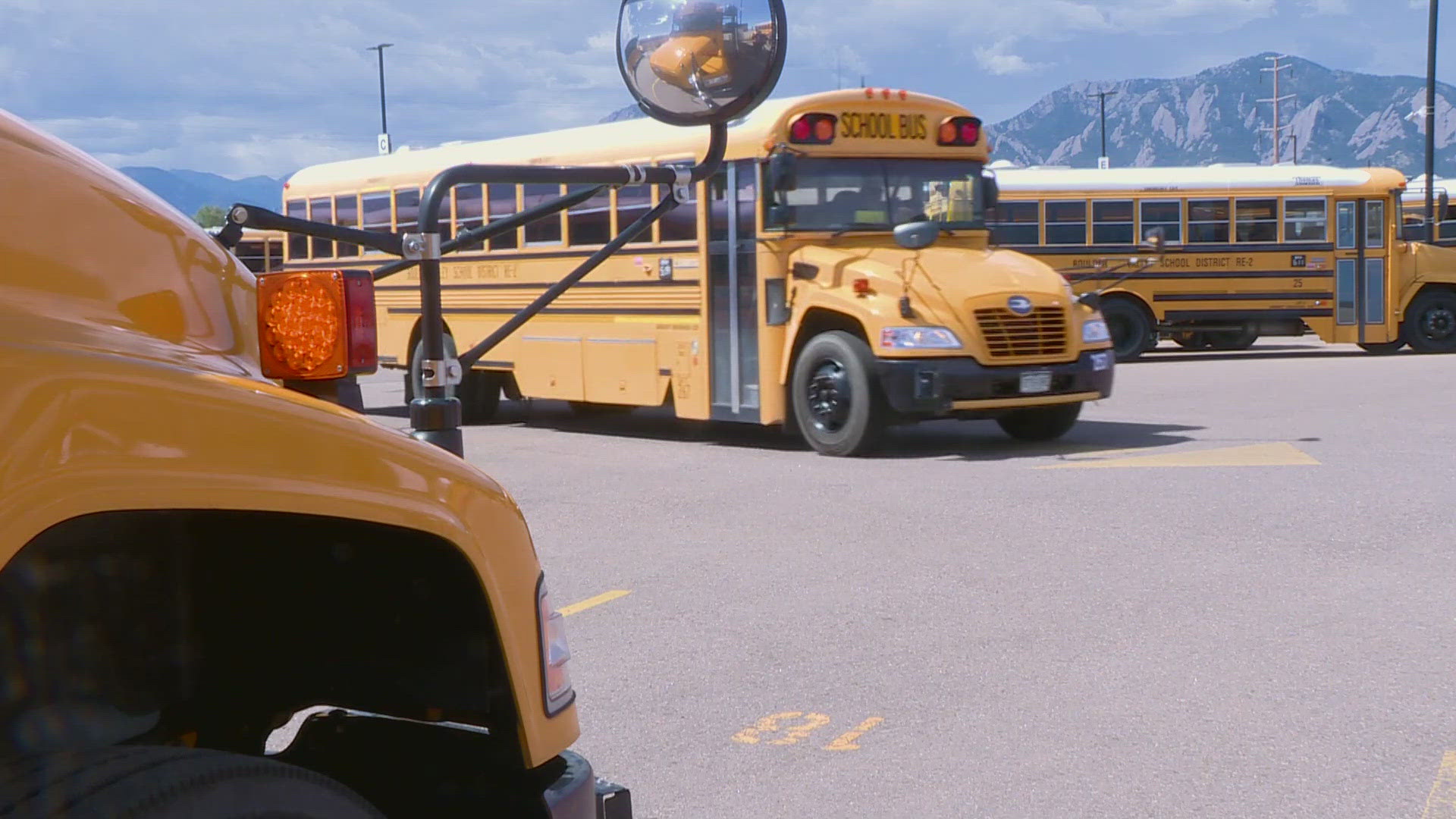BOULDER, Colo. — Across the state, electric buses are bringing hundreds of students to their first day of school. The Boulder Valley School District said it had two energy-efficient buses on the streets for its first day Wednesday, but will have more by the end of the school year.
"We’ve got nine electric buses currently in the fleet and four more on order," Safe Routes to School program coordinator Amy Thompson said.
Thompson explained even though they have electric buses in their possession, they haven't been able to hit the road due to underground infrastructure needs.
"We’ve had to work with our partners at Xcel Energy to get the infrastructure installed underground to get the electricity to the charging stations, get those installed," Thompson explained. "And we’ve had to work with the software companies because just because you have a beautiful, working charging station it doesn’t work with our interface with our buses so we’ve had to work with those software glitches."
In the last week, charging stations at BVSD's Lafayette terminal have been completed, allowing for more buses to be added to route rotations.
"A nice transition, a rewarding transition, and we’re going to keep expanding," Thompson said.
The Regional Air Quality Council provided BVSD with a $2.5 million grant to get its sustainability goals off the ground. The grant allowed them to purchase their first buses and become the first district in the state to put an electric bus on the road.
In January 2022, RAQC said its alternative fuels program budget had been completely allocated and future funding would be provided by state entities.
In June 2022, state lawmakers created a $65 million fund for schools to purchase electric buses and maintenance needs. The state is supporting districts like BVSD in its efforts toward sustainability.
Sustainability and Energy Officer Ghita Carroll said the district adopted a goal of reducing its carbon footprint back in 2009. This is the third iteration of the plan and it's updated every five years.
"We have a specific goal in our five-year plan to reduce fleet emissions by 14% as a part of that larger goal," Carroll said.
She said the district's tactics go outside just changing what kind of buses are on the roads.
"We have live energy data for most of our schools so we have real time energy use and can make greenhouse calculations from that," Carroll said.
Carroll said students have actively shown interest in decarbonization work, especially with some having personal experiences with the negative results of climate change.
"A third of our community was impacted by the Marshall Fire and I know that had a deep impact on our students and families," Carroll explained. "It all feels more real than it used to in terms of what the impacts are of climate change."
BVSD said it has 230 buses of all fuel types in its fleet and serves about 5,000 to 5,500 students daily.

